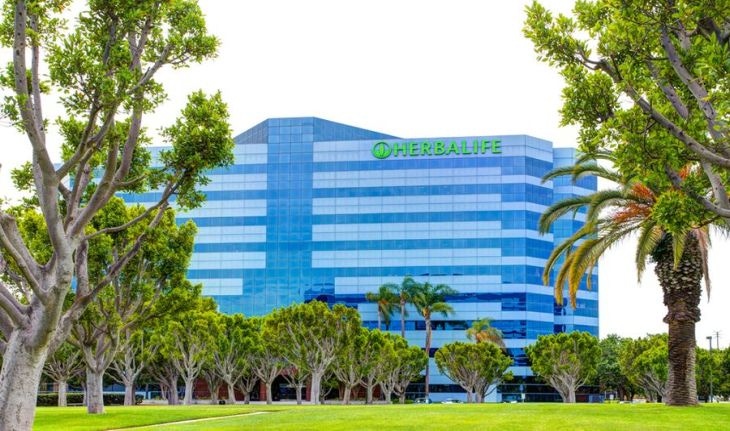Herbalife Nutrition handily beat Wall Street's expectations in its most recent quarter.

Herbalife Nutrition, the multi-level marketer of weight loss products and nutritional supplements, reported third-quarter results this week that handily beat Wall Street’s expectations.
The company on Oct. 30 reported adjusted earnings per share of 74 cents on net sales of US$1.24 billion, an increase of 15 percent over the year-ago period.
“Our strong sales and earnings performance during the third quarter demonstrate the global consumer demand for our nutrition products,” Richard Goudis, CEO of Herbalife Nutrition, said in a statement.
Revenues in several regions—including North America, where Herbalife Nutrition reported $240 million in sales, a roughly 20 percent increase year over year—soared.
The public company (NYSE: HLF), which reached an agreement in 2016 with the FTC to restructure its U.S. business operations, also announced board approval of a five-year program to repurchase $1.5 billion in shares.
Equity research analysts who track Herbalife Nutrition’s results were impressed.
The company’s third-quarter results and its guidance for 2019 “point to strong top-line momentum after years of depressed growth,” equity analysts with Jefferies, the financial services company, wrote in a Nov. 1 research note, recommending a “buy” on Herbalife’s shares.
Sales beat analysts’ consensus estimate by 2 percent, and profitability also exceeded expectations, Jefferies said.
For the year ending Dec. 31, 2018, Herbalife Nutrition is forecasting sales growth between 9.9 percent and 10.9 percent, excluding currency valuations and other factors in Venezuela, which comprises less than 1 percent of the company’s total net sales.
Net sales in Asia Pacific rose nearly 19 percent to $274.3 million, the EMEA (Europe, Middle East and Africa) increased roughly 10 percent to $235.9 million, and Mexico grew about 6 percent to $121.2 million. Those figures include the impact of foreign currency exchange rates.
South and Central America was an exception to a strong quarter, where net sales fell about 12 percent to $101.1 million.
“Clearly the underlying business has gained meaningful traction with its top 4 markets in aggregate growing the top line comfortably in the double-digits,” wrote Douglas Lane of Lane Research, an independent research firm, in an Oct. 31 note circulated to institutional clients.
In the quarter that ended on Sept. 30, 2018, weight management products comprised $785.3 million in net sales, followed by targeted nutrition ($315.9 million), energy, sports and fitness ($84.2 million), outer nutrition ($21.7 million) and a final category that includes literature among other items ($35.7 million).
Adding to the company’s positive momentum, Herbalife Nutrition held an investor day for the first time in years. Ivan Feinseth, director of research of Tigress Financial Partners, a financial services firm, said the Oct. 31 event in New York City was successful.
“Herbalife continues to gain traction with both distributors and customers driven by new product introductions and focused global expansion,” Feinseth wrote in a Nov. 1 research note. “I believe significant upside exists in Herbalife from current levels and continue to recommend purchase.”
Equity analyst Michael Swartz of the investment bank SunTrust Robinson Humphrey maintained a “hold” recommendation on Herbalife’s shares, though he concluded in a research note, “Overall, the quarter came in much better than expected from a top line/margin perspective and we expect HLF's sizeable buyback program to be well received by investors.”
The stock price of Herbalife Nutrition closed Thursday, Nov. 1 at $53.40. As of that time, Herbalife’s stock was up 57.71 percent year to date, Feinseth said in an email.
Herbalife has come a long way since an adversary—billionaire Bill Ackman of the hedge fund Pershing Square Capital Management—accused the company in December 2012 of running an illegal pyramid scheme. In the ensuing years, Herbalife vigorously denied that its business was a fraud, but it came under investigation by the federal government and reached an agreement with the FTC in 2016 to pay $200 million and restructure its U.S. business operations.
Some of the changes included requirements to track retail sales and personal consumption of products by Herbalife's distributors.
Herbalife Nutrition "still faces near-term risk as it institutes mandated changes/tweaks to its business model (retail consumption tracking) as part of the settlement," Swartz wrote in his research note. "As these changes are ‘digested’ by its distributors, we believe there is the potential for near-term disruption, which keeps us on the sidelines."
The company's exposure to the restructured business model in the United States is limited, though. Herbalife Nutrition derives the vast majority of its sales outside the United States.
As of Sept. 30, 2018, Herbalife Nutrition sold its products in 94 countries throughout the world. And through the first nine months of 2018, only $733.7 million of the company's $3.7 billion in net sales derived from North America.
About the Author(s)
You May Also Like






.png?width=800&auto=webp&quality=80&disable=upscale)